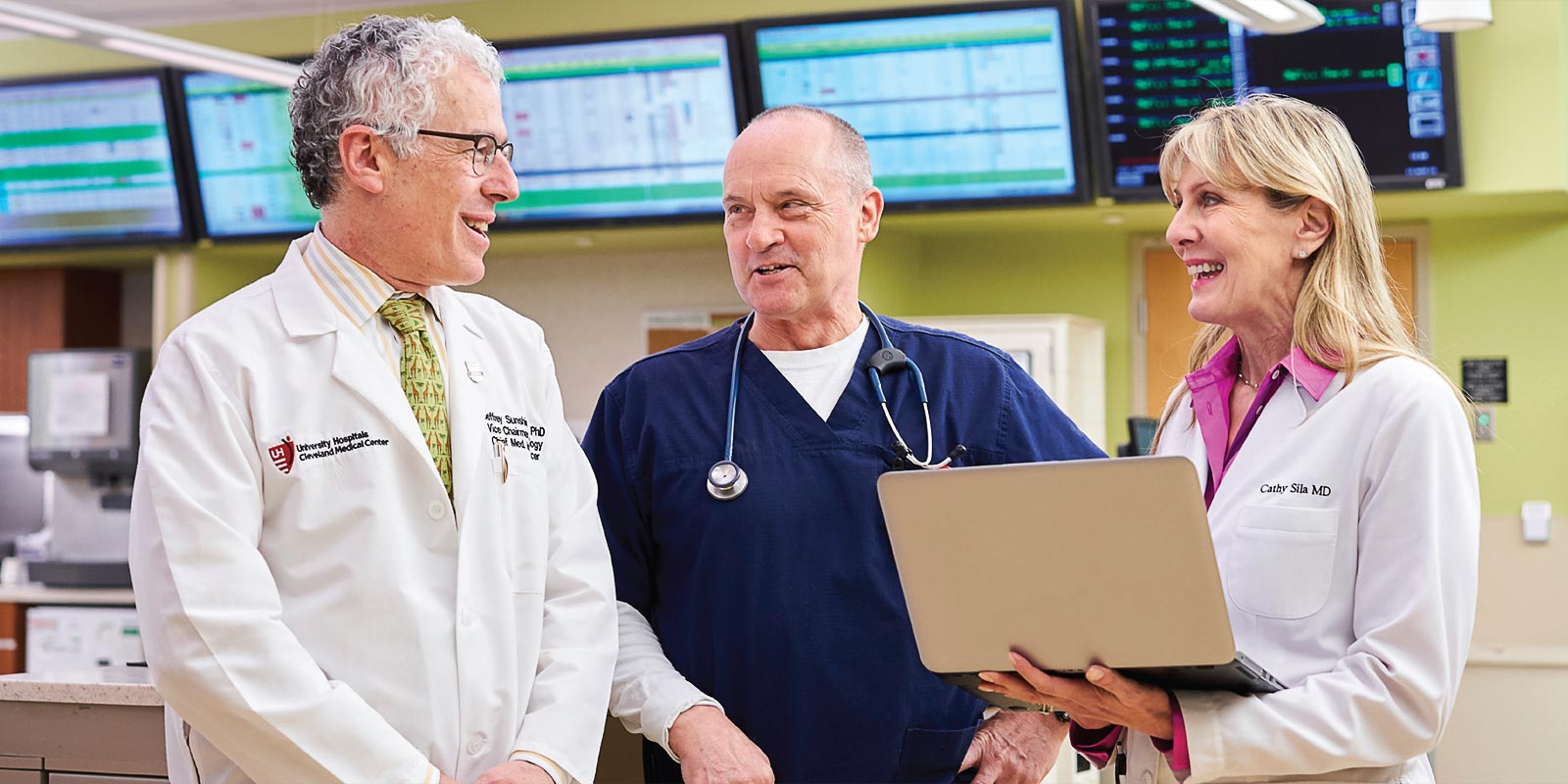It's the DAWN of a New Day in Stroke Treatment at UH

When stroke occurs, every second counts. For those who rely on UH in this critical moment, they can take comfort in knowing they will receive the highest quality care and the latest techniques available. From technology providing live-stream stroke assessments for patients en route to our emergency rooms to using innovative devices that mechanically remove a clot, UH treats patients suffering from stroke in a uniform, yet individualized manner. UH Neurological Institute’s Comprehensive Stroke Center leverages UH providers’ expertise with advances to elevate our standard of care.
These protocols result from research and clinical trials. For example, UH was a major participant in the international DAWN trial which extended the window for treating patients with a major stroke up to 24 hours after symptom onset. The study, which ended early due to its success, was published in The New England Journal of Medicine.
UH’s principal investigator for DAWN was Cathy Sila, MD, Chair, Department of Neurology, and Director, Comprehensive Stroke Center, UH Cleveland Medical Center; Director, UH System Stroke Program; and the Gilbert W. Humphrey Professor of Neurology. According to Dr. Sila, half of the patients who received treatment had a good outcome at 90 days: “DAWN used clinical criteria and special imaging studies to determine who could benefit from this treatment.” Prior to this clinical trial, many patients were not considered eligible for such lifesaving treatments.
Studies like this fundamentally change the way stroke is treated. As an academic research institution, UH incorporates study findings into protocols that are used at all UH hospitals.
The UH System Stroke Program leads quality initiatives with UH Neurological Institute teams and work together to handle the most complex neurovascular disorders. “In building the stroke program at UH, our goal was to form stroke-certified teams across the UH system who work to deliver the best treatments immediately after diagnosis,” said Dr. Sila. “Once we establish the plan for care, we can determine whether the patient can be cared for at their community hospital or whether their needs are more complex requiring transfer to a UH hub hospital or UH Cleveland Medical Center.“
The stroke specialists at UH Cleveland Medical Center collaborate rapidly via telemedicine links throughout the health system. This communication and shared protocols provide the expertise of an entire team using the latest therapies to move patients toward recovery.


